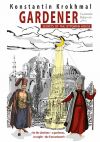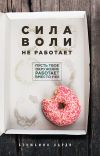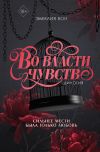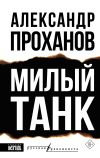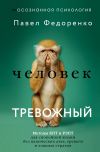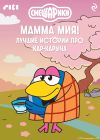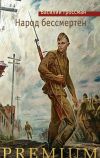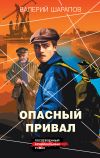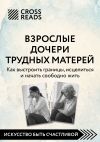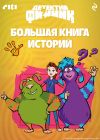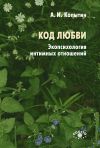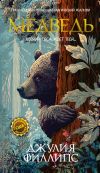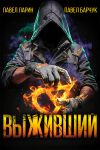Текст книги "Khon Yush. Way From the Ob"
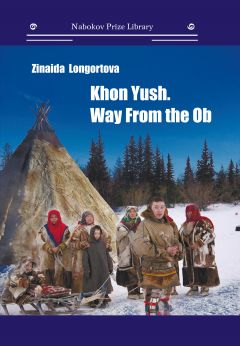
Автор книги: Зинаида Лонгортова
Жанр: Историческая литература, Современная проза
Возрастные ограничения: +16
сообщить о неприемлемом содержимом
Текущая страница: 2 (всего у книги 14 страниц) [доступный отрывок для чтения: 4 страниц]
«We'll be there soon!» Anshem iki hastily rowed towards the stream, lifting oars with colored ocher lobes. «They gave us the child. What are we going to do with a hungry baby?»
«I'll go to Khutline now. Maybe she still has some milk?»
«What a grief she has. Any mother can lose her milk after things like yesterday.»
«Then it will appear. Not only is she in trouble, this baby also has grief– it is left without its mother. Her husband is alive. He's been taken for a while, but he will be back. And this orphan was born on damp earth. We are its closest people now!»
Anshem iki quickly went through the oars. In his little boat he carried the fate of someone else's baby, who had just breathed the autumn air on the land of his ancestors, in spite of the mighty, high-water river Ob. Native, lanthan, Khulan As, who had been prayed by his ancestors for centuries and brought a bloody sacrifice in the spring before the ice drift for feeding them, giving life, did not always favor people. The price for the survival of an entire nation was enormous: more than one victim in a year was taken by the river.
The boat landed, and the woman rushed to the neighbor's house, shouting to her husband on the run:
«Heat the water. Get granddaughter's cradle from the crib!»
Levne was already aging, but was still fast. She did not know how to think with her feet, like many of her slow neighbors. She walked as if someone was rushing her. Nature awarded her not only a quick gait, a sharp mind, but also a sympathetic heart. She gave birth to eleven daughters and only one son. All daughters were well-married, and the last one stayed with her. Her son was not lucky. During the birth his wife was taken by the Underground God, and only little Tatya pleased all the family members who loved this growing, cheerful little girl.
She hastily approached the house of the young shaman. There wasn't a single thin stream of smoke since yesterday.
Levne cleared her throat loudly, notifying that she wanted to enter as a guest, and threw back the entrance canopy of the dwelling. In the female place, she saw the mistress swaying lifelessly from side to side, while her rich, sonorous braids made plaintive sounds. Sometimes the woman began to howl. Children sat on deer skin beds silently, with their eyes full of tears. Hungry since yesterday, they stared at their mother. Levne went up to Khutline, crouching on one knee, stroking the destitute neighbor left without a husband, and showed her the child:
«They gave us a newborn child, from people abandoned yesterday on the shore. The exiles. The young Tatar gave birth and left for another world right away. It needs milk. Feed it, dear.»
«My milk is gone,» Khutline howled.
«That's fine. Put the orphan to your chest, and the goddess Kaltashch will help. Milk will appear. For some reason, the Mother of Heavenly Child gave us other blood, maybe we can grow it? You must help me with breast milk. Its hands and legs will get stronger, and it will run. And your daughter is also silent from hunger. Feed her too».
«I can't. I have no strength!» The hostess said, leaning her head back from the overwhelming grief, without tears, with dry sore eyes, slowly swaying.
«Take it, take it, and I'll put things in order here.»
Levne handed the baby into woman's hands, rose from her knee, went to the fire and fanned it with dry birch bark and slivers. She hung the kettle over the fire, and looked out of the house, carefully glancing toward the river. A fisherman approached the shore.
«Son, run to the boats,» she turned to the eldest son of Khutline, «it seems like Uncle Yuhur came from fishing. Tell him Aunt Levne is asking for some fish,» and hung a boiler with water over the fire. Khutline stared blankly at the strange child. Then, realizing what was required of her, she tried to feed the newborn.
«Looks like milk has appeared!» She soon said.
«Have our gods ever left an orphan?»
Khutline's son returned to the house, with a large whitefish hooked in his fingers. Silently glancing at his mother, he laid the fish on the mat. Following him, Yuhur came in and dumped his catch from the bag at the entrance to the same grassy mat.
«It's fresh. I caught it this morning, so you can make a narkhul. The whitefish rises to spawn, it's full of roe. I should go. My family has already woken up and kindled a fire in the hearth. I can see smoke rising from my house.»
«They're waiting with hot tea. You've got a good soulmate, khilyem!»
They heard the hostess weeping in the house.
«So now everyone is going to help me?» Cried Khutline.
«That's fine. We used to support the destitute since ancient times. If the husband returns, he will feed his children himself, but for now we will live like that,» answered Levne, taking up the neighbor's catch.
The little Khutline's daughter started crying. Levne went to the children. The boys carefully shook the crib with his little sister by the rope. She untied the cradle with a crying child from the perch and handed it over to her mother.
«Don't you cry. Feed your daughter, she's hungry since yesterday. Think of your little kids, this is what the goddess Kaltashch Anki bequeathed. Only empty-headed cuckoos sing for the whole forest, forgetting about their children. Spirits will quickly punish you for weakness. Remember the ancient covenants of our gods. Yesterday you rejoiced at every baby, but today you mourn a living husband, you keep the kids in a cold nest. Not good at all!»
Khutline, who got thinner in one night, mechanically took her daughter from the neighbor's insistent hands.
Recently, when she was proposed and brought to the village, no one could pass by indifferently. Young girls looked enviously at the beautiful bride, even the guys were ready to look under several layers of obscure scarves. From this day on, her face was covered from all adult male relatives in the village. Khutline was brought from a neighboring village, on the other side of the Ob. She went ashore near the village, covering her face with three wedding scarves, surrounded by matchmakers and many women, pretty like a fine large Ob nelma, which every year only gets filled with juice. The happy bride herself even tried to peek out from under silk shawls and take a look at the villagers. She wanted to see people living in a new place. The curious girl even managed to see her future husband: from the wood house, where she was hidden after the matchmakers had arrived in the village. She immediately fell in love with a stranger whom she saw among the guests, although she could not even guess who he was. According to custom, matchmakers come without a groom, but that time the groom turned out to be wayward.
Now her face was blackened, and her beauty was gone. From time to time, silent tears oozed out of her eyes, as if from a dried-up autumn little river. It seemed that her back was stooped and could no longer straighten from grief.
Laying the newborn on the bed, Levne began to hastily clean the fresh fish. Her hands flickered so quickly that the silver sparkles of the scales scattered in all directions. She was in a hurry. A new sense of motherhood had already firmly settled in her heart, and she felt an acute desire to hold a new man who already belonged to her.
«You need to drink some soup, as you have to feed two now. I'll come to you once a day, and you'll feed the baby with your breast milk. I don't want to bother you. We'll feed you with the soup. We've got fish. The almighty Kaltashch Anki will help us bring the baby up!» the woman said with firm hope, looking up at the chimney through which she could see the gray autumn sky. «We'll live!»
The soup was ready in the boiler. Levne quickly moved the low dining table closer to the children's beds. She laid out pieces of fish in a wooden huvan, poured fish soup into the bowls, called for the boys to eat, and helped the hostess sit down at the table.
«Be sure to eat and feed the children. And I'll go wash the baby, it's already waking up. Full and warm – what else a baby needs. Grandfather and granddaughter are waiting at home. He'll be glad with a new person.»
Again wrapping the child in the hem of the upper dress, gently pressing it to her chest, Levne silently slipped out of the house, tightly covering the entrance canopy behind her.
At home, surrounded by her three-year-old granddaughter, son and husband, Levne unfolded the child and exclaimed:
«It's a girl! Khatanevie!»
«So fast and pretty. Her arms and legs are dancing, karkam evi!» her husband exclaimed.
Levne took a wooden trough and prepared sacred water – added ashes of otter fur, mixed it with ush, a birch mushroom – so that no evil spirit touched the baby. Then they noisily bathed the newborn. Their little granddaughter was there, poking at the newborn.
«Hey! What a daughter we have. She can be a friend to our granddaughter! Now I'll prepare the Khanty cradle and lay her down. She'll swing on the cradle rope of my children,» Levne wiped the baby, and laid her in a birch bark cradle. An ancient capercaillie ornament scraped up on the head of the cradle provoked a healthy sleep for the baby.
«Sleep soundly, and the capercaillie will guard your dreams. Grow fast, and may the happiness of my children be yours.»
Grandfather already tied oblong wooden cradle rings to the ceiling beams, sighing, pleased with the new family member, and exclaimed once more:
«What a child the Mother Goddess gave us!» He shook his head in admiration.
«Go to the Russians again tomorrow,» the hostess asked. «They will now live in the village, down there, near the filling litter, they make the dugouts. Give the woman that was helping in birth this knife,» Levne took out a household knife with a wooden handle from a sheath decorated with fanciful ornaments, «let Pukan anki be a midwife for our girl. And give this cross to the second woman who helped her, ask her to be a godmother – Pern anki,» she took out an old dark cross drawn with inscriptions from her patterned tuchan. Once upon a time, her mother gave this knife before she died, and her mother got this cross from Levne's grandmother.
The days when strangers began to come to the Khanty lands and forced the people to accept the faith of others had been long gone. The cross was attached to this faith. They have a legend why the Khanty adopted Christianity. «They say that there are three gods living in heaven: the Russian God, Tatar Allah and the Khanty Turam. They visit each other. They sit at the same table, drink tea, treat themselves. Together they think how to help people on earth. One day Turam came to visit Allah. They ate a large cauldron of mare meat, drank tea, spoke, finally Turam began to gather home. How to let a guest go without a gift? Allah decided to give him a horse. Turam thought: „What shall I do with this horse? How will I feed it? There is only moss in the tundra“. But he couldn't refuse a gift in order not to offend his friend. He tied the beautiful white animal to his reindeer sledges and drove home. Next time, Allah and the Russian God were visiting Turam. They stayed, ate frozen fish and deer meat, drank tea, and then were going home. Turam also made presents to his guests. He decided to become relatives with Allah, and gave his younger sister to him as a wife. He decided to give the Russian God a little land. Turam had a lot of it, and he did not have time to go round his lands on the fastest-legged deer in a year. The next time, Turam went to visit the Russian God together with Allah. They drank braga, ate delicious food, spoke and then started to gather home. The Russian God took out a small cross from the sacred corner and gave it to Allah. The Tatar God was offended. He turned around and, without saying goodbye to his friends, he left. Russian God turned to Turam, thinking, and said: „My friend, accept the most expensive present I have in my house!“
Turam thought: „Why do I need his holy cross?“ He thought back and forth, drank more than one cup of tea, and then remembered: „They say that dark forces are afraid of his cross. I gave the land to the Russian God, and lots of evil spirits crawled out from the swamps, haunting the outskirts. I won't put his cross on my neck: I'll put it in a sacred chest, and if I need it, I'll scare every creature. „He accepted the gift of the Russian God and rode home on the swift deer. He's still here. He worships his idols, his holy land, water, every blade of grass, bows to a tree, and scares the evil spirits with his cross“.
That's how the Khanty live. They don't forget to bow to their gods and keep the cross».
«I'll ask Khutline,» Levne said thoughtfully, «to be the mother of Altam anki, who was carrying our girl». She needs to be in public, and her heart will quickly melt. And her husband will return someday.
She took the cradle and hung it on the patterned wooden rings that her husband tied to the ceiling beams. Anshem iki shook a capercaillie goiter toy to attract child's attention before it fell asleep.
«Kaltashch Anki is looking at us. A newborn should have five mothers. The first mother will be the goddess herself. The mother goddess will be offended if we don't dedicate the child to her – the baby will often get sick,» Levne, the main mother, muttered joyfully.
«Great Nye gave us joy – a daughter. Everything must be done according to customs. Let her grow and enjoy life.»
They cradled the child, and the girl immediately fell asleep in a warm Khanty cradle under joyful conversations.
The next day, Anshem Iki found two women who were making a dugout on the settling hill. Pulling out a female knife with a wooden handle from his bosom, he tried to put it in the thin fingers of the one that was taking birth. Seeing the knife in the hands of Anshem Iki, she shied away. Grabbing a frightened woman by the wrist, he forcibly put the gift in her hands:
«Be the midwife for my daughter, Pukan anki.»
The new midwife, puzzled, examined the knife with a simple handle nested in a birch bark scabbard. Decorated with branchy ornaments that spoke of something unknown, the birch bark warmed her palm with the yellow sun. Then Anshem Iki pulled out a dark cross from his bosom. He turned to the woman which was now the friend of his daughter Pukan anki, and caught the hand of a beautiful woman. Trying to escape from strong male hands, she screeched with fear. He put a sacred cross in her palm:
«And you, my daughter, be Pern anki – the godmother.»
Then he turned calmly and went towards his village. Women did not understand a thing, they stood and looked after him. Then the godmother raised her hand to throw out the cross. Then she stopped, and started hiding it feverishly.
«Why did he bring this? What shall I do? After all, they will put me in jail if they see the cross. Maybe I shall bury it in the ground?» Her heart tightened in fear.
The midwife also examined her knife, then said:
«He probably brought us presents for the girl. You can't throw it away, but you need to hide it. Wait, I have a good piece of birch bark here. Let's wrap it up right there, in a conspicuous place, near the dugout, and bury. We'll find it when good times come.
„Will good times come?“ The godmother sighed bitterly.
„Don't you worry, girl! Be sure they'll come, don't even think about anything bad. Soon everything will be fine and we'll be taken home.“
„I wish. How are we going to spend the winter here?“
„Don't stand. Give me the cross, there's the guard coming. They can see it.“
She wrapped the knife and the cross in a piece of birch bark, and began digging the ground near the birch. At first, she threw wooden chips into the hole, and then put the gifts in the middle.
„Let's dig in. Quick, put the turf so that it's not visible,“ Pukan anki rushed her friend.
Having covered everything with earth and turf, women instantly grabbed shovels to make a dugout. Soon a guard came up and began to question:
„What did the old man want?“
„He said something, but we couldn't understand what he wanted. We thought he would go to the authorities, but he went to his place. Maybe he wanted to bring some fish, we don't know.
Maybe he scolded us that the girl was thrown. We don't understand his language.
„You fools, why did you open your mouths? Be silent about the child, otherwise I will send you further north.“
Women said, stumbling:
„Don't ask us! We did not see the baby“»
What and to whom could they say, bonded people of huge Russia under constant guard? Neither they had homes, nor the land, nor households – and nor rights. Their only goal was to save a man in themselves, not to become a beast in this remote taiga. Even this was hardly possible: every person those days thought only of his life, not of nobility. In order to survive, you needed to become slippery like a smelly burbot, slimy, toothy like a pike. But, as you know, pike and burbot always fall into the largest boiler. It's more convenient to cook large pieces of fish well.
It seemed that people lived on a deserted, god-forgotten land. The only ship on the Ob came once a month from afar. For thirty-forty kilometers from each other, you could find inconspicuous Khanty villages. In the small, dull gorts that were hidden near deep saimes, there were only two or three huts. The father's house – the clan's house, and, perhaps, the houses of older sons separated by age. However, every day at least one boat passed along the Ob banks, then another one sailed upstream. In good weather, light boats quickly disappeared behind the turn of the Ob, and on fishing boats, kayaks, that were stable on the waves, there were several people. Rowers struggled in three oars with the fast flow of the high-water As river, which had spread widely over the litter. It was good if they went down the river, but if they were sailing up, they had to stay close to the shore, where the current slowed down due to the shallow water.
No one was surprised when a few days later authorities approached the village. When people saw the boat arriving, they looked out of the doors and closed them again. There were attentive eyes looking from all the low windows of the huts and houses. District officials walked into the village council with a red flag fluttering. Soon the messenger boy ran to the houses, calling people to the gathering. Levne stepped out of the house with Anshem iki, looking around, and ran into the forest with the cradle. Anshem iki and his granddaughter went to the gathering. A high boss from the district stood next to the chairman, looking at the ignorant people who did not understand anything in the new life. He frowned, carefully examining people. Clearing his throat loudly, the guest spoke menacingly:
«Someone from your village took a newborn from exiled kulaks, from criminals. Who was it?»
The Khanty were silent as always. What could they say without knowing the Russian. Kurtan iki, the assistant chairman of the village council, wanted to get forward, but someone rudely pulled him back. A large man blocked him with his back and said loudly:
«Our babys here. Other baby no walk.»
«Baby no walk,» the newcomer from the district mocked, «so we have the newborn already walking!»
Someone convincingly spoke from the crowd:
«Hoyat baby holt tulev?»
Kurtan iki again began to get out of the crowd. He really wanted to help the authorities: they had important, necessary laws, but his fellow villagers didn't understand that a child of strangers had no place in the Khanty village:
«We have baby!»
«What? Where is the baby?» The visitor exclaimed.
«Turkoi kurt luti toock baby, mun at watsev nyavram!» Kurtan iki was painfully squeezed among the crowd, and went silent.
«That's ok, keep quiet! We'll check every home now. Chairman, take us to all the houses. Look at them! They decided to hide the children of the kulaks. Apples don't fall far from the tree.»
People were silent as they poorly understood Russian, but firmly held Kurtan iki.
The district authorities, along with the gloomy chairman, went with a family check. Anshem iki's neighbor, pushing into the back of the abiding Kurtan iki, headed towards the river. Kurtan iki resisted, but, fearing his cousin, continued to walk with him.
«If you live with bad thoughts, I'll drown you in the Ob,» the broad-shouldered man reprimanded the black-haired relative with cunning eyes. Kurtik iki was completely depressed from the frustration, lowering his shaggy head: he couldn't do a good deed for the authorities.
Kurtan iki was not liked in the village: he was envious, and the luck of his relatives never pleased him. Under the new government, he could compliment, almost bowing to every boss. He could slander anyone before him. He did this, of course, not for the benefit of himself, but for the benefit of the new government. He reported to his relatives, but received no gratitude from the authorities. They did not even thank him, but he already became addicted. Kurtan iki had nothing to do at the honorable work of the Russians, nor he went hunting like his brothers or other relatives. It seemed to him that his work was precisely in this, and it pleased him. What about the villagers? Constantly dissatisfied, illiterate. He didn't know how to write, but could sign documents. He didn't draw tamgu on paper – he wrote his name in letters.
Kurtan iki was the last child in a large family. His mother was fifty years old when she suddenly felt another heart beating under her heart. In their old age, his parents indulged their last child, allowing him whatever he wanted. While elder children helped around the house, went fishing, hunting, harvesting firewood and water, the favorite child played late until night with the neighboring children. The best pieces at the table went to the youngest, and he was used to taking it for granted. If only everything was done for him. Kurtan iki did not learn anything good from hardworking, kind parents.
Having looked at the work of the new authorities, who, without going into the forest for prey, without blood corns from oars, calmly earned money for bread, Kurtan iki was delighted. For Russians, those who have learned one or two letters were no longer illiterate. Therefore, he went to serve them, exposing himself to his superiors in every possible way. Soon he was appointed foreman. The bosses didn't need to catch fish, or get cold at a frozen ice-hole. Now he himself was the head of everything.
But no one envied him, although the new foreman dreamed of it. He envied everyone. His fellow villagers were indifferent to power. And his wife, silent Utiane, was not happy for him. She did not care if he was the boss or just her husband.
Noone knew who was to blame: the NKVD people or someone from the village who was informed about the newborn. The guards of the settlers was free. From time to time they came for fresh meat in the Khanty part of the village. They ate fish together, but someone, apparently, couldn't stop thinking of the baby born. But for some reason no one reported that they took a fresh catch from the population.
Finding nothing in Pitlourkurt, district authorities left for the next village to look for the unknown child. As soon as everything calmed down in the village, Anshem Iki went into the forest for his wife. Soon they returned home. The baby's face was smeared with mud and ash, although the little Tatar was no different from the Khanty children. They did it just in case: who would touch a dirty girl?
The authorities couldn't find the child, so soon they calmed down. How could one find a newborn in large Khanty families? Women gave birth according to ancient customs, in small clean houses specially set for mothers, with a bonfire that cleansed and warmed a woman in labor. You can't give birth in a house, it's a great sin. The child must be clean from all human sins and evil spirits.
There wasn't a single hospital within three hundred kilometers from the village. No Khanty woman in those years would dare to commit a terrible sin and let a doctor take birth. They had a midwife for this – and that was enough. The children were registered in the village council much later after the birth, while others were not taken into account by the Soviet government at all.
After the umbilical cord fell off at the little Tatar, women gathered at Anshem iki's house, bringing the children dressed up for the ceremony of initiation. Levne appointed mother assistants to the newborn girl – Pukan anki, Altam anki, Perna anki, and most importantly, according to the ancient custom, she thanked the goddess Kaltashch, to whom she dedicated her new child. It was she, Kaltashch Anki, who gave children to a family. Levne prayed to her, bowing her head in gratitude for the happiness of a fair-haired Tatar girl accidentally falling on her head:
«Long-braided, Golden Nye!
More beautiful than the sun, Golden Nye!
More beautiful than the beautiful, Golden Nye!
In a silk shawl colored like the morning dawn, whose long tassels are decorated with uncountable silver stars.
In the sable clothes, white kisas embroidered with the sacred ornament, sitting in your golden house in Heaven, goddess Kaltashch, you sent us a blessed day,» prayed Levne.
«My soul sings with happiness, and I thank you for the priceless gift, for the fair-haired daughter, who smiles with her ember eyes. I dedicate her soul to you. Take care of her, let her please us with her bright smile!» Grateful Levne bowed three times to the goddess.
«Your long braids are falling, Heavenly Nye, with a seven-fold silk sable from the mouth of the deep-water Ob to the Kara Sea itself. At night, under the moonlight and a thousand stars, your hair illuminates everything around. Even for our daughter moonlight and stars illuminate your face. On a clear day, your braids illuminate summer land covered with a green carpet, winter land with a white snow coat. Let the ends of your golden braids touch the head of our baby. Each of your fingers is wearing countless gold and silver, expensive and cheap rings – gifts of all the women of the Khanty land that gave birth or wish to have children. Take the ring from me too!»
At the sacred labaz, Levne laid a scarf with a silver ring tied in a corner and several hairs of a newborn girl. This was a gift to her, the Goddess of mothers. She was to decide the fate of the little Tatar by birth, and Khanty by fate, as the Khanty goddess Kaltashch Anki gave her life on the edge of this cold, frosty earth. That day she started writing every step of the girl in the sacred paper ornament, her whole life, whether it was long or short, rich or poor, happy or unhappy. She could send her disease if the child's mother had unkind thoughts, or send joyful days if the child's mother had bright thoughts.
Like the legends say about Kaltashch anki:
Turam the father allowed her, the beautiful, to be stronger than all the gods.
Turam the father put her, the almighty, above all the gods.
She was given the right – to continue life,
She was given the right – to give life,
She was given the right – to run life,
She was given the right – to resurrect life.
She was commanded by Turam to be stronger and higher than hundreds of Khanty gods in Heaven and on earth. Only the Great Almighty Turam gave her the right to authorize the birth of not only a child on earth, but also all animals, birds and insects. She gives life to men, and she takes it away. Her golden staff has many threads of deer veins, from which the goddess knots out the length of a newborn's life. How long a person lives in the world depends on this knot of life.
God Turam created the Khanty man, but it turned out that procreation depends on the woman. Therefore, the Almighty Turam gave this great power to his daughter Kaltashch – to be the Mother of all mothers, of all people on earth.
According to legends, if Turam had not given the Great rights to Kaltashch, the Khanty land would be empty without people. Without a woman, there is no life on earth, no continuation.
All women living on the Khanty land are in full view. She decides on procreation in the family, and woe betides women if the Mother Goddess does not look into their families. Punishing for a serious sin, she will not give a child to this family. A tree of a whole family will dry up; there will be no one to remember people after their death.
For years childless husbands and wives try to atone for their family and tribal sins, offering sacrifices to the Deer Goddess, giving gifts, but rarely does she forgive. It is hard to atone for the sin of killing, betrayal or the insult inflicted on Khanty spirits and gods. Earthly woman only carry the child and give birth, but it is Great Nye who gives the first breath, gives soul to a newborn. That's why Khanty women cannot rejoice at the child presented by the goddess Kaltashch for their entire lives.
For the poor upbringing, especially for the condemnation of other people, Kaltashch could punish a mother or a child with serious illnesses, which all women were so afraid of.
Therefore, Khanty women thank Heavenly Mother all their lives, and took care of their children. They brought them up as it is sung in her song – a message to people:
I give a beautiful daughter, beautiful Nye!
I give a strong son, beautiful Nye!
Good girls grow like brightest colors,
Good boys grow like rich grass.
Giving glorious daughter to a woman
Giving a good son to a woman
I, the Golden-Haired Priceless Nye
Thereby command,
Thereby bequeath.
May my covenants be fulfilled:
Ample tables with hot food.
Those striving for good luck set a table
Bringing bloody sacrifice to me!
Behind the sacred corner of Anshem iki's house, the mothers made fires on the iron sheet – a cleansing fire for women and children. They set up a low table with products – hot food and refreshments for Kaltashch Anki and patrimonial spirits. This is what Kaltashch Anki bequeathed to do in gratitude for the child.
Levne took out a small piece of otter fur and a birch growth – ush, conductors for cleansing the unkind spirits. All this was thoroughly burned in the fire, and sacred smoke rose above the children and guests.


